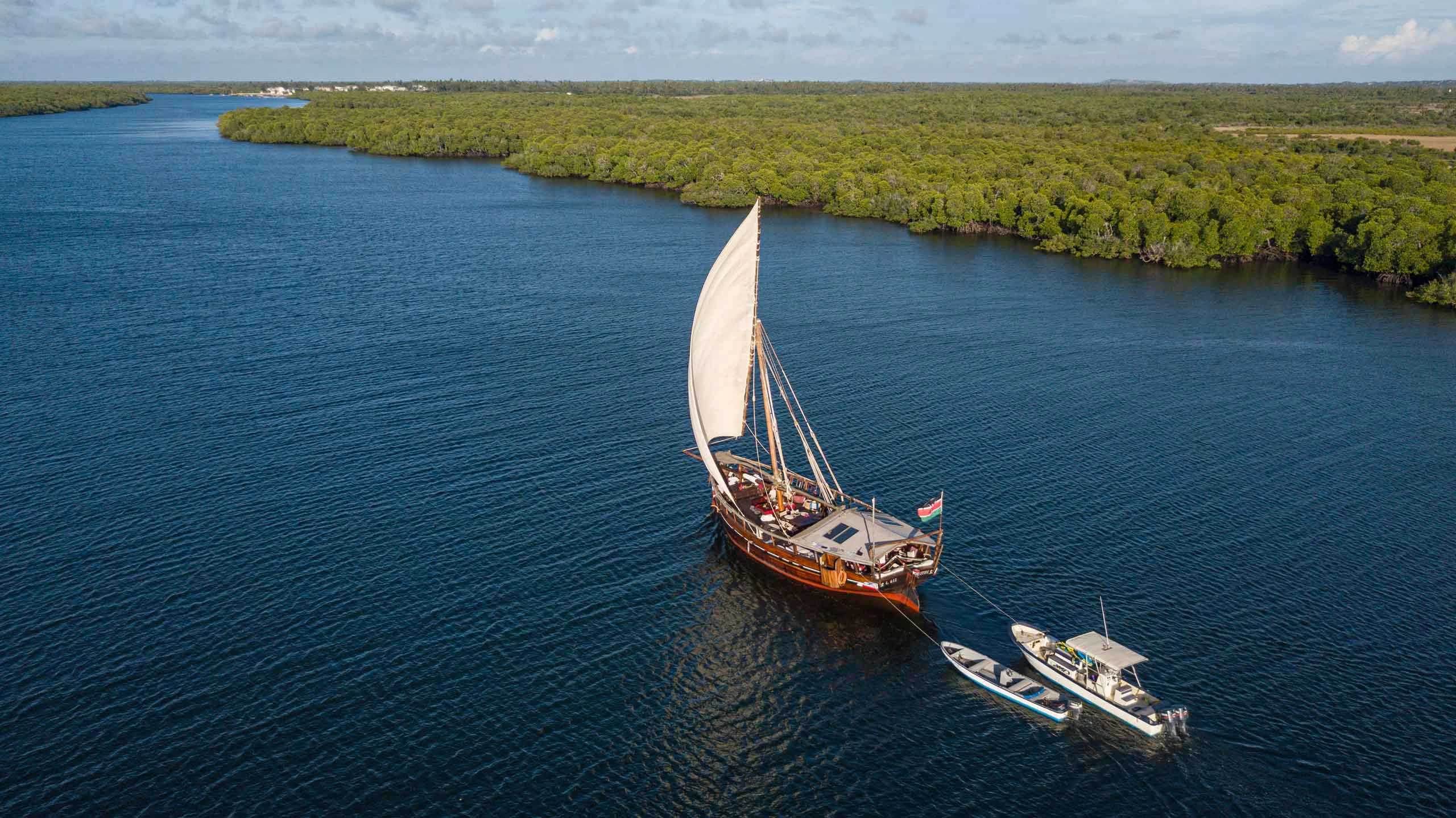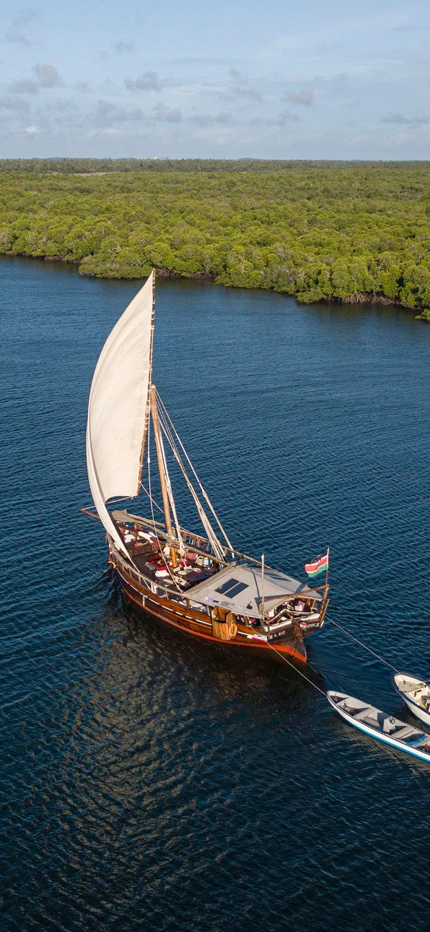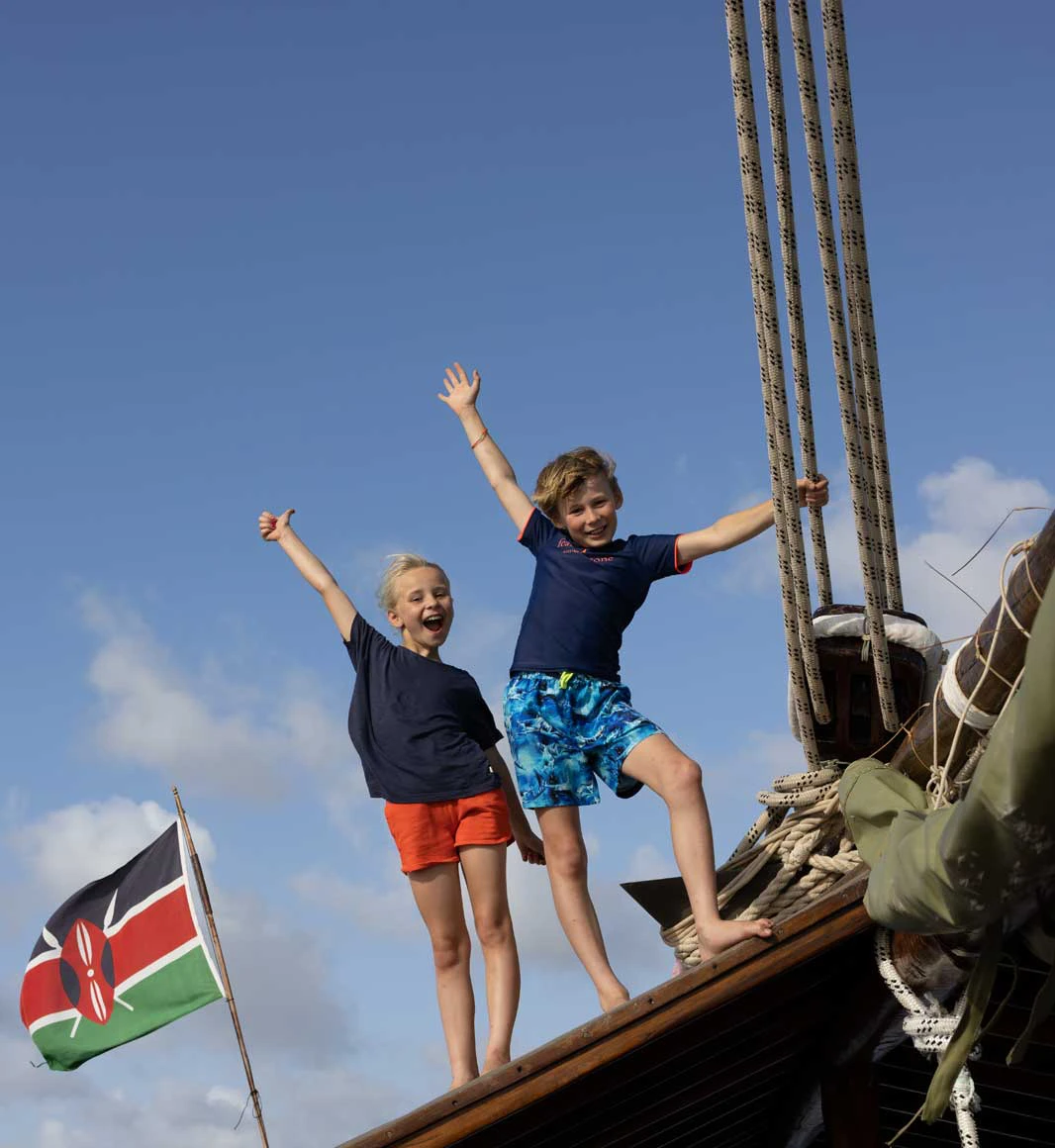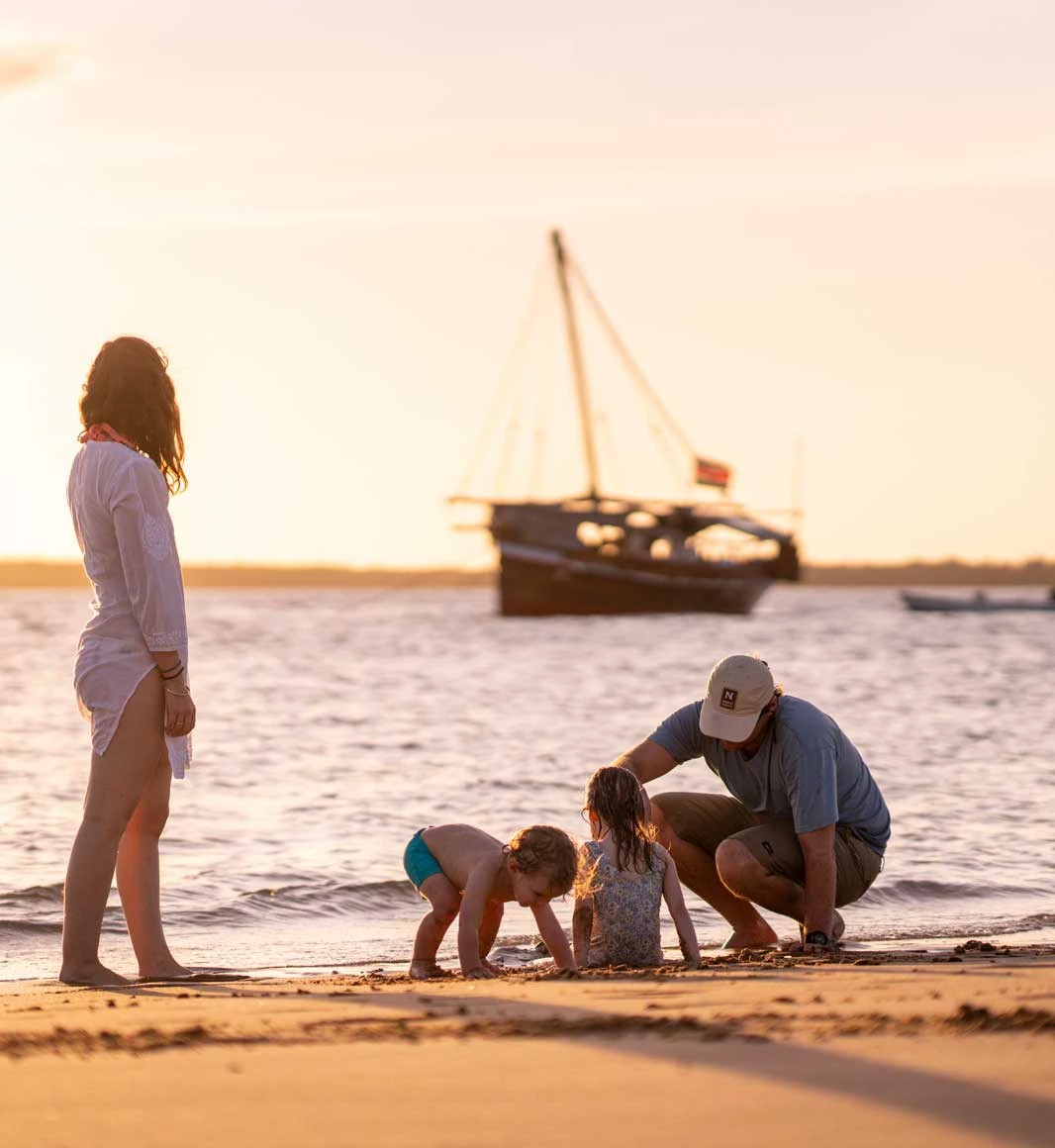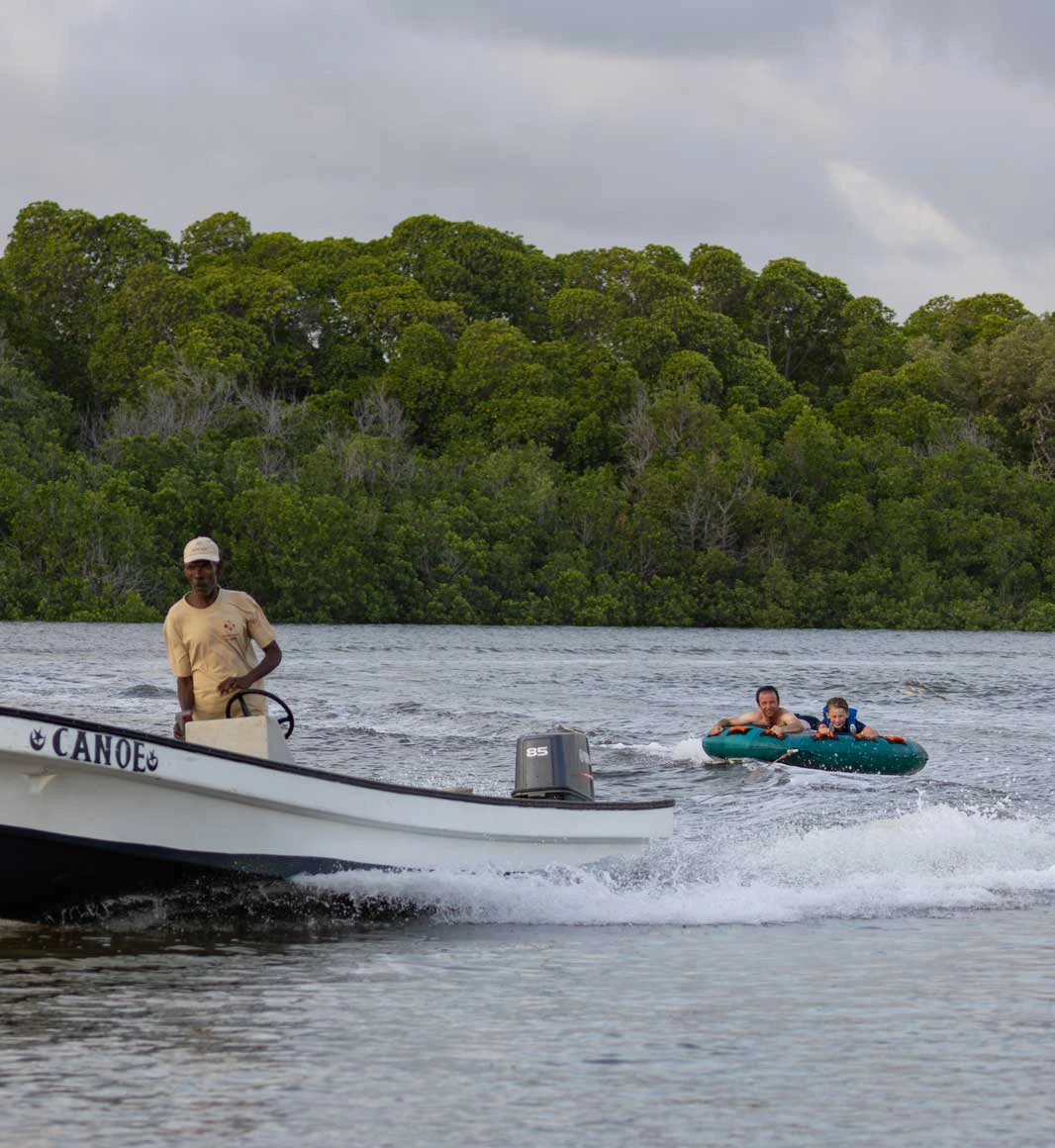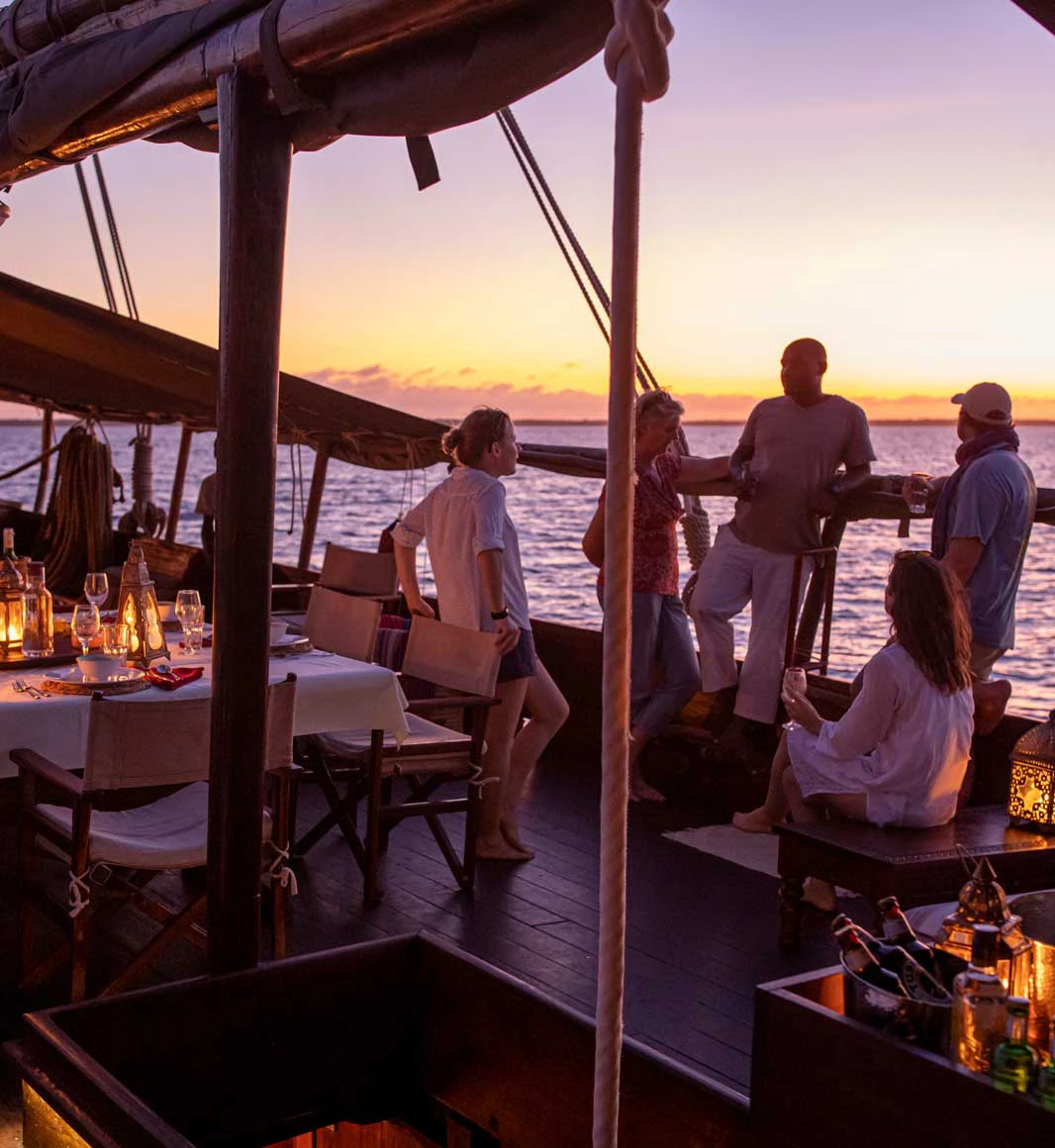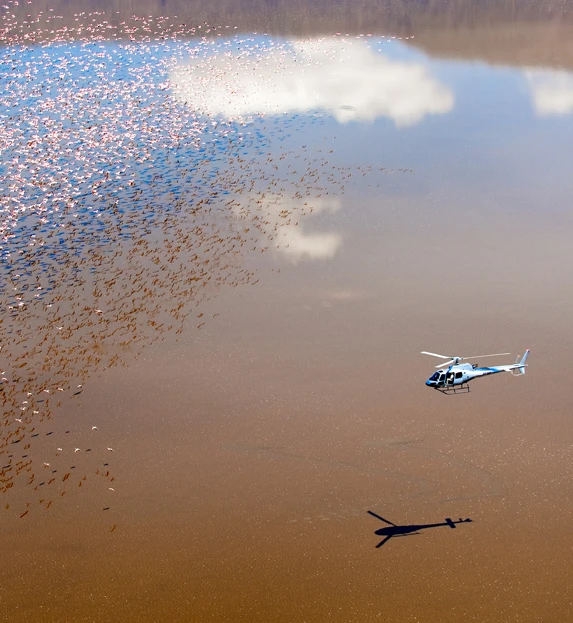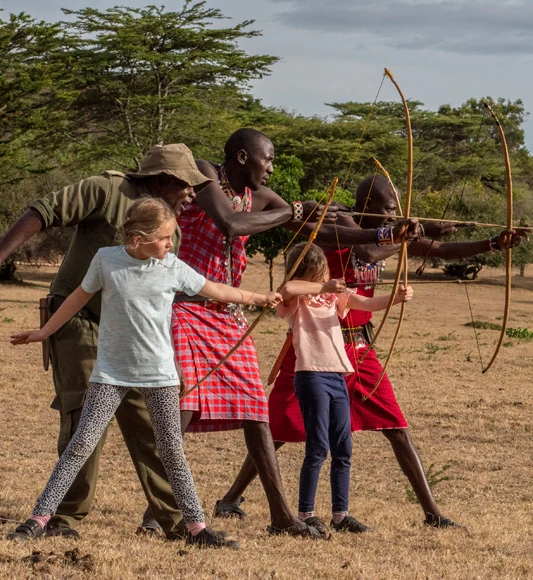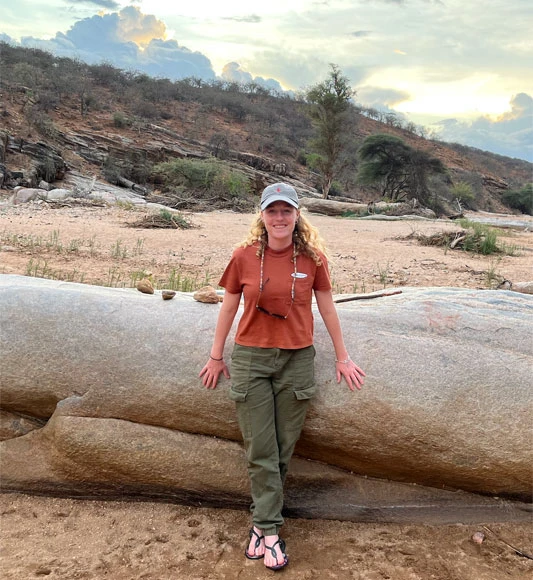Originally hand-crafted as a trading vessel to carry goods such as spices along the Indian Ocean trade routes, this traditional 65-foot wooden sailing boat has been meticulously restored and converted into a luxury vessel for up to 10 guests.
Lamu Archipelago is a rare unspoilt gem in the Indian Ocean and a perfect destination for a luxury beach holiday in Kenya. White sandy beaches are fringed with palm and casuarina trees whilst turquoise waters teem with marine life. The region has welcomed travellers for over a thousand years, yet has been seemingly forgotten by tourists. Steeped in history, Lamu is the oldest town in East Africa and a UNESCO World Heritage Site, making it a fascinating place to visit.
Highlights of a Luxury Kenyan dhow safari
"Brass lanterns cast a glow as you drift off to sleep with meteors shooting across the Milky Way and the ocean gently lapping against the dhow."
Anchor up for lunch and observe mouth-watering Swahili-inspired dishes and fresh seafood being prepared in the open-air galley kitchen. After feasting on the likes of gazpacho and chilli prawns, dive into the warm sea, stroll along a deserted beach, snorkel amidst the coral reefs, go water-skiing and wake-boarding or paddleboard in quiet lagoons and mangrove creeks.
As the evening draws in, watch as the sun dips below the sea’s horizon – a spectacular sight. Dinner is another delicious feast served under a blanket of stars. As you eat, the top deck is transformed into your bedroom for the night. Immaculate linen bedsheets and mattresses are rolled out side by side, separated by huge cushions – your very own pillow fortress! Brass lanterns cast a glow as you drift off to sleep with meteors shooting across the Milky Way and the ocean gently lapping against the dhow.
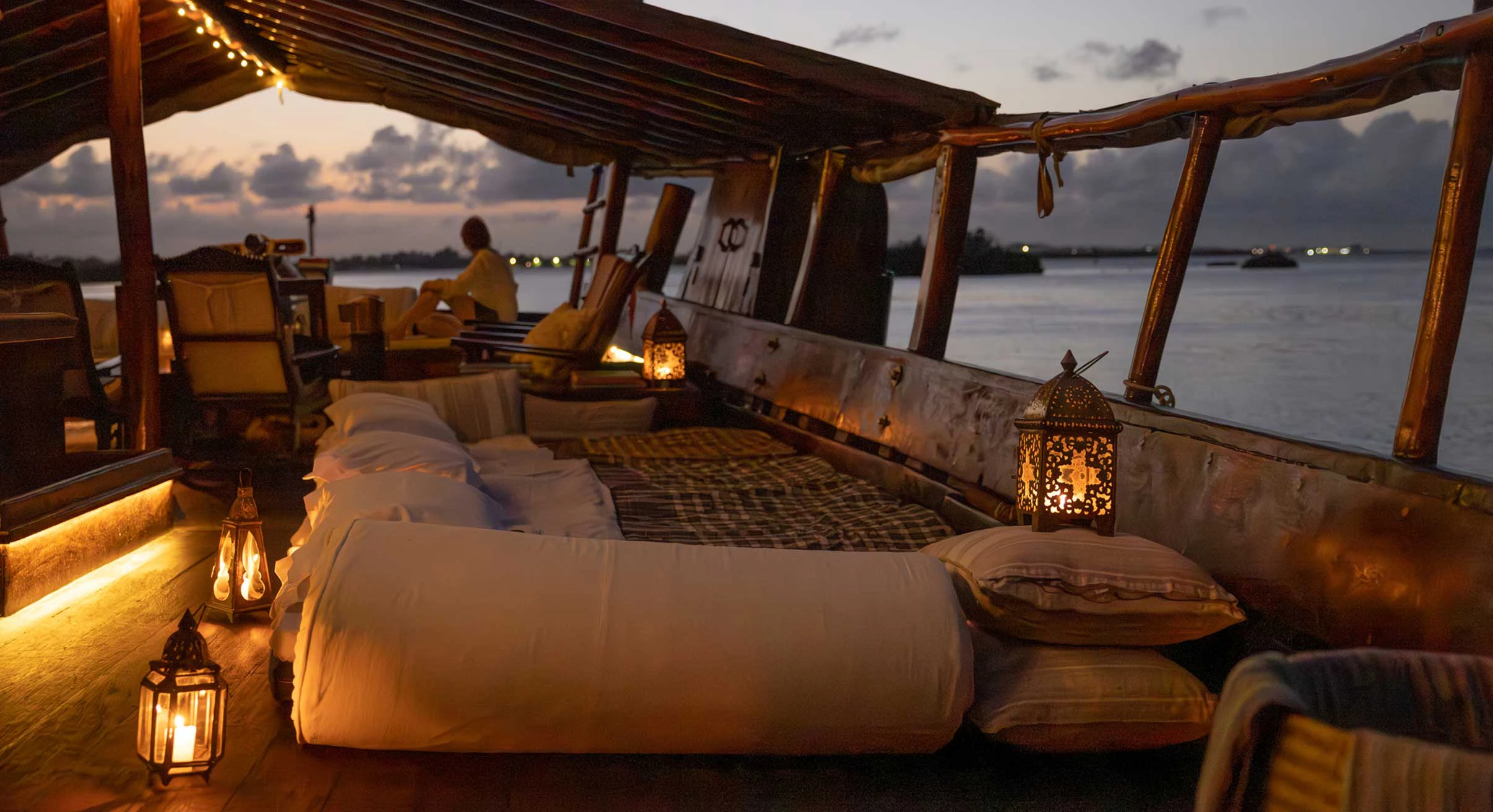
(Photos: ©Tusitiri Dhow)
The crew comprises highly skilled Bajuni sailors whose expertise has been passed down through generations, as well as local wildlife enthusiasts who can provide you with a wealth of information on the area.
Travelling with Explorations, you can be guaranteed that each safari is tailor-made according to your group’s interests and preferences (as well as the seasons and tides, of course). All you need to do is relax and soak up the surroundings as you glide through this unique archipelago.
Ready to take the road less travelled?
